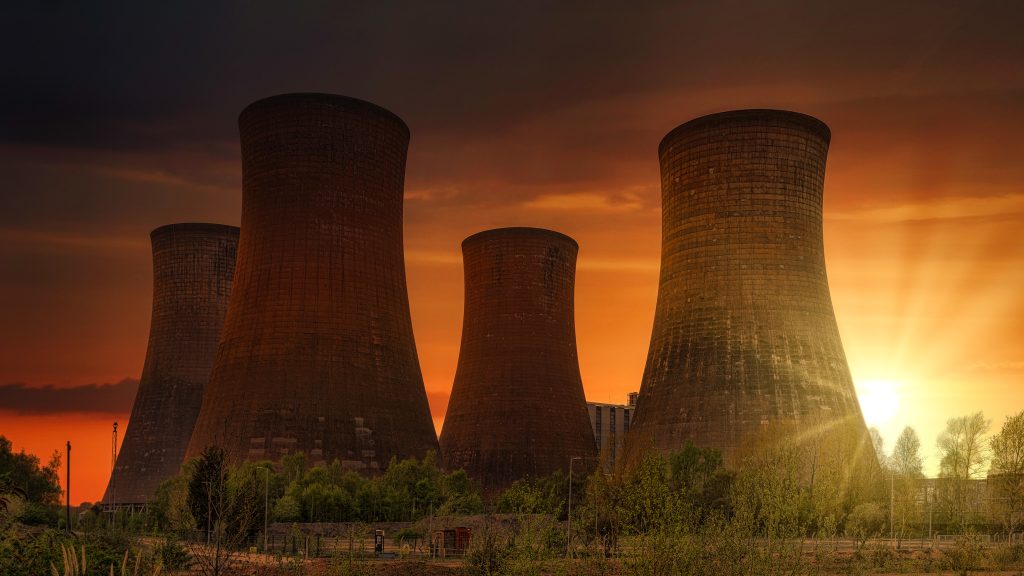Are you curious about the state of nuclear power in Germany? Look no further. This comprehensive overview will provide you with all the information you need. Germany’s nuclear power industry began in the 1970s and reached its peak in the 1980s before declining due to safety concerns and public opposition. The country’s nuclear power policy has undergone significant changes over the years, with a commitment to phase out nuclear power by 2022. Join us as we delve into the complexities of Germany’s nuclear power industry and its transition to a more sustainable energy future.
Germany’s Nuclear Power Generation
Germany had a total of 17 nuclear power reactors before the Fukushima Daiichi accident in 2011. These reactors played a significant role in Germany’s nuclear power generation, supplying over one-quarter of its electricity. However, after the Fukushima disaster, public opinion on nuclear power shifted, leading to a decision to phase out nuclear energy in the country.
Germany’s nuclear capacity has undergone significant changes since 2011. The operating fleet was reduced to nine reactors with a capacity of 12 GWe by the end of 2011, and by January 2022, it further decreased to three reactors with a capacity of 4 GWe. Finally, in April 2023, the last three reactors were shut down, marking the end of Germany’s reliance on nuclear power.
The nuclear energy transition in Germany was driven by concerns about safety, public opinion, and the desire to promote renewable energy sources. The government aimed to achieve a balanced energy mix without nuclear power and to become a leader in renewable energy technologies.
One of the challenges faced during the nuclear phase-out was the issue of nuclear waste disposal. Germany needed to address the storage and disposal of nuclear waste generated by the reactors. This remains an ongoing concern even after the closure of the reactors.
Shutdown of Nuclear Reactors
The shutdown of the nuclear reactors in Germany marks a significant milestone in the country’s departure from nuclear energy. The decommissioning process of these reactors involves several safety measures to ensure the proper handling of radioactive materials and the protection of the environment. Public opinion has played a crucial role in shaping Germany’s decision to phase out nuclear power, with a majority of people opposing the nuclear phase-out according to recent polls. However, the government has emphasized the importance of energy security and has focused on expanding renewable energies to compensate for the loss of nuclear power. From an environmental perspective, the closure of nuclear reactors has resulted in significant CO2 savings, highlighting the contribution of nuclear power to Germany’s electricity generation. The government’s goal is to generate 80% of electricity from renewables by 2030. Despite the challenges and concerns related to grid stability, energy costs, job losses, and nuclear waste disposal, Germany remains committed to its transition away from nuclear energy and towards a more sustainable and diversified energy mix.
Development of the Nuclear Power Industry
Now let’s delve into the development of Germany’s nuclear power industry. The nuclear power industry in Germany has had a significant impact on the country’s economy. It has contributed to the generation of electricity, providing a substantial portion of the country’s power supply before the Fukushima Daiichi accident in 2011. However, the industry has faced challenges and changes over the years. Here are five key aspects of the nuclear power industry development in Germany:
- Economic Impact: Germany’s nuclear power industry has played a crucial role in the country’s energy sector, contributing to the overall economy. It has provided employment opportunities and contributed to the national GDP.
- Safety Regulations: The development of the nuclear power industry has been accompanied by stringent safety regulations. The German government has implemented measures to ensure the safety of nuclear facilities and the prevention of accidents.
- Public Opinion: Public opinion on nuclear power in Germany has been divided. While there has been support for the industry in the past, public sentiment has shifted over time, particularly after the Chernobyl and Fukushima accidents. There is now a significant portion of the population that opposes nuclear power.
- International Collaborations: Germany has actively engaged in international collaborations in the nuclear power industry. It has collaborated with other countries on research and development projects, sharing knowledge and expertise in this field.
- Future Prospects: The future of the nuclear power industry in Germany remains uncertain. The government’s decision to phase out nuclear power by 2022 indicates a shift towards renewable energy sources. The focus is now on expanding renewable energies and achieving a balanced energy mix without nuclear power.
Nuclear Power Policy in Germany
As you delve into the topic of Nuclear Power Policy in Germany, it is important to understand the key principles that guided the country’s approach to nuclear energy. Germany’s nuclear power policy has been shaped by various factors, including safety concerns, energy security, public opinion, and the promotion of renewable alternatives. A comprehensive overview of these aspects can be seen in the table below:
| Key Principles | Description |
|---|---|
| Safety concerns | After the Chernobyl accident in 1986 and the Fukushima disaster in 2011, there were heightened safety concerns regarding nuclear power. These incidents led to a decrease in public support for nuclear energy. |
| Energy security | Germany’s decision to phase out nuclear power was also driven by the goal of reducing dependence on external energy sources. By focusing on renewable alternatives, the country aims to enhance its energy security and reduce reliance on imports. |
| Public opinion | Over the years, public opinion in Germany has shifted regarding nuclear power. While initially there was support for the phase-out, recent opinion polls indicate a more divided stance. This highlights the importance of considering the views and concerns of the general public in policy decisions. |
| Renewable alternatives | Germany’s nuclear power policy is closely tied to its commitment to expanding renewable energies. The government aims to generate 80% of its electricity from renewable sources by 2030. This focus on renewables aligns with the country’s goals of reducing carbon emissions and promoting sustainable energy solutions. |
Germany’s Nuclear Power Phase-Out
When will Germany complete its nuclear power phase-out?
Germany completed its nuclear power phase-out on April 15, 2023, by permanently shutting down its last three operating nuclear power reactors. These reactors, namely Isar 2, Emsland, and Neckarwestheim 2, are pressurized water reactors. The closure of these reactors marked the end of Germany’s journey away from nuclear power. The decision to phase out nuclear power was influenced by safety concerns following the Fukushima nuclear disaster in 2011 and public opposition to nuclear energy. Germany has shifted its focus towards renewable alternatives and aims to generate 80% of its electricity from renewables by 2030. The closure of the reactors has resulted in significant CO2 emissions savings, contributing to Germany’s efforts to combat climate change. However, the nuclear power phase-out has also led to job losses in the nuclear industry, which is a concern that the government needs to address. Despite some opposition, the majority of Germans support the phase-out, reflecting the changing public opinion on nuclear energy.
Impact on German Energy Mix
How has Germany’s nuclear power phase-out impacted the country’s energy mix? The decision to phase out nuclear power in Germany has had a significant impact on the country’s energy mix. One of the main concerns has been grid stability, as the intermittent nature of renewable energy sources has posed challenges in ensuring a consistent and reliable power supply. Additionally, the transition away from nuclear power has resulted in job losses in the nuclear industry, which has had implications for the workforce.
Energy costs have also increased as Germany has relied more heavily on renewable sources. While renewable energy investment has been a priority, the initial costs of infrastructure development and the integration of renewables into the grid have contributed to rising energy prices.
Storage and disposal of nuclear waste have been ongoing challenges that Germany has had to address. The phase-out has highlighted the need for safe and effective long-term solutions for the storage and disposal of nuclear waste.
Despite these challenges, the phase-out of nuclear power has propelled Germany’s renewable energy sector. The country has made significant investments in renewable energy technologies and aims to generate 80% of its electricity from renewables by 2030. This transition has not only reduced carbon emissions but has also positioned Germany as a leader in renewable energy.
Challenges and Concerns
Transitioning away from nuclear power in Germany presents several challenges and concerns that need to be addressed. These include:
- Grid stability: The intermittent nature of renewable energy sources can pose challenges to grid stability. As Germany relies more on renewables, ensuring a stable and reliable power supply becomes crucial.
- Energy costs: The shift towards renewable energy sources has led to an increase in energy costs. The investment required for the expansion of renewable infrastructure and the integration of intermittent sources can put a strain on consumers’ wallets.
- Job losses: The phase-out of nuclear power has resulted in job losses in the nuclear industry. Many workers in nuclear power plants and related sectors have faced the risk of unemployment, requiring measures to support job transitions and retraining.
- Nuclear waste disposal: Germany needs to address the storage and disposal of nuclear waste generated from its previous nuclear power operations. Finding a safe and sustainable solution for long-term waste management is essential.
- Public opposition: While the majority supported the phase-out initially, public opinion has shifted, with six out of ten people now opposing the nuclear phase-out. Overcoming public opposition and addressing concerns about the reliability and safety of alternative energy sources is crucial for a successful transition.
Addressing these challenges and concerns will be vital for Germany to achieve a smooth and successful transition away from nuclear power while ensuring grid stability, affordable energy prices, job security, responsible waste management, and public acceptance.
Overall Impact and Goals
As you consider the overall impact and goals of Germany’s transition away from nuclear power, you may wonder: what are the key outcomes and objectives of this significant shift in energy policy? The closure of Germany’s nuclear power reactors signifies the country’s complete departure from nuclear energy. The government is committed to expanding renewable energies and aims to generate 80% of electricity from renewables by 2030. This transition has significant implications for the country’s energy mix and carbon emissions. The phase-out has resulted in significant CO2 savings, as nuclear power has been a major contributor to Germany’s electricity generation. However, challenges and concerns have also arisen. Ensuring grid stability during the transition has been a challenge, and energy costs have increased due to the reliance on renewable sources. Moreover, job losses in the nuclear industry have occurred, and the country needs to address the storage and disposal of nuclear waste. Despite these challenges, Germany remains committed to its renewable targets and believes that the expansion of renewable energies will secure a sustainable and secure energy future.
Changes in European Countries’ Stance
In the article ‘Nuclear Power in Germany: A Comprehensive Overview’, we now shift our focus to the subtopic of ‘Changes in European Countries’ Stance’ regarding nuclear power.
- European countries’ nuclear plans: Many European countries have planned to reduce their reliance on nuclear power generation. Some countries, such as France, the UK, Poland, Czech Republic, and the Netherlands, are even building new nuclear plants. On the other hand, Belgium and Switzerland are seeking to extend the operating licenses of their existing plants.
- Renewable energy transition in Europe: The transition to renewable energy sources has become a priority in Europe. The increasing affordability and reliability of renewable technologies have led many countries to invest heavily in wind, solar, and hydroelectric power.
- Public opinion on nuclear power: Public opposition to nuclear power has been on the rise in many European countries. Concerns about safety, waste management, and the potential for accidents, especially in the wake of events like the Fukushima disaster, have shaped public opinion.
- Nuclear power and climate change: The role of nuclear power in addressing climate change is a topic of debate. While nuclear power is a low-carbon energy source, concerns about waste disposal, safety, and the potential for accidents have led some to question its role in a sustainable energy future.
- Economic impact of nuclear phase-out: The phase-out of nuclear power has had economic implications for European countries. The closure of nuclear plants has resulted in job losses in the nuclear industry. Additionally, the transition to renewable energy sources has required significant investment and infrastructure development.
Germany’s Role in Renewable Energy Transition
How has Germany played a significant role in the transition to renewable energy? Germany has emerged as a global leader in renewable energy, spearheading a renewable revolution and making remarkable progress in its energy transition. The country’s commitment to sustainable power future and its relentless pursuit of green energy progress have placed it at the forefront of renewable energy leadership.
Germany’s renewable revolution can be attributed to its ambitious renewable energy policies and investment in renewable technologies. The government has implemented a series of measures, including feed-in tariffs and subsidies, to incentivize the development and deployment of renewable energy sources such as wind, solar, and biofuels. This has led to a significant increase in renewable energy capacity and a shift towards a more sustainable and diversified energy mix.
The success of Germany’s energy transition can be seen in its impressive renewable energy generation. Wind and solar power have become significant contributors to the country’s electricity mix, with wind accounting for 19% and solar for 8% of total generation in 2021. The country’s commitment to renewable energy has also resulted in a significant reduction in greenhouse gas emissions, with the closure of nuclear power plants saving almost 10 million tonnes of CO2.
Germany’s role in the renewable energy transition extends beyond its borders. The country’s experience and expertise in renewable energy technologies have influenced other European countries’ stance on nuclear power and encouraged them to pursue renewable energy alternatives. Countries like France, the UK, and the Netherlands have started building new nuclear plants, while Belgium and Switzerland are seeking to extend the operating licenses of their existing plants. This shift in Europe’s energy landscape can be attributed, in part, to Germany’s leadership in renewable energy.



